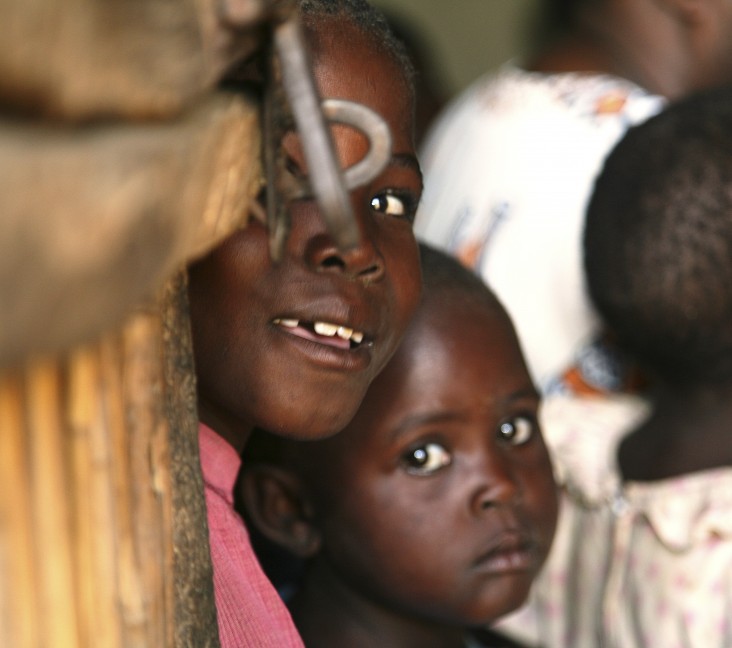
OVERVIEW
USAID supports the health sector with high-impact, evidence-based interventions. Due to the devolution of health sector management and service delivery to 47 counties, our interventions focus at the county level with targeted support at the national level. We work with the Government of Kenya, civil society, faith-based organizations and the private sector on HIV/AIDS prevention, treatment and care; family planning and reproductive, maternal, neonatal, child and adolescent health; nutrition; water, sanitation and hygiene; malaria prevention and treatment; and tuberculosis control and treatment. Interventions include technical assistance to support health service delivery; training of healthcare professionals; procurement and management of health commodities; health communication and marketing; human resources for health; health financing; and health information management.
PROGRAM AREAS
Strengthening Health Systems
We work with the Government of Kenya to build a strong health system, responsive to the needs of individuals, families and communities. We support improvements in the health workforce; health information system; supply chain management; financing; and leadership and governance. We focus on the inter-related elements of recruitment, retention, training and supervision by implementing a comprehensive strategy to strengthen all cadres of health workers.
We have made significant investments to improve the supply chain management for HIV, malaria and family planning commodities. USAID, along with other donors, support the Government of Kenya to improve the collection, verification and use of health data. To improve financing for health, we strengthen program planning and budgeting at both the national and county levels, with an emphasis on domestic resource mobilization to create a more sustainable health sector.
Towards an AIDS-Free Generation
USAID works through the President’s Emergency Plan for AIDS Relief (PEPFAR) to combat the HIV/AIDS epidemic in close partnership with the Government of Kenya. Launched in 2003, PEPFAR represents the largest U.S. Government investment in HIV globally, and enables Kenyans living with HIV/AIDS to access the treatment and care they need while also gaining the knowledge to eliminate the spread of the disease from mother-to-child and partner-to-partner. As a result of U.S. Government efforts, Kenyans have increased access to HIV/AIDS prevention, treatment and care services; more people than ever before are on anti-retroviral therapy, and more Kenyans than ever before are being tested for HIV. USAID’s HIV care and support program focuses on HIV palliative care; orphans and vulnerable children; nutrition; home-based care; and TB/HIV services.
Reducing the Burden of Malaria
Malaria is one of the leading causes of morbidity and mortality in Kenya. Kenya is a focus country of the U.S. President’s Malaria Initiative (PMI), which supports USAID and other key U.S. Government partners, in collaboration with the Government of Kenya, to expand malaria prevention and treatment measures. Since the launch of PMI in 2008, the U.S. Government has invested more than $221 million to support malaria prevention, control and treatment services in Kenya.
Ending Preventable Maternal and Child Deaths
In partnership with the Government of Kenya, we work at the national and county levels to address and combat the main causes of maternal and child deaths. Activities focus on the continuum of care, including antenatal care; skilled birth attendance; essential newborn care; and post-partum care. Both community and facility initiatives are used to support increasing the uptake of these interventions. Prevention and management of common childhood illnesses at the community level support the Government’s strategy to attain universal coverage of cost-effective child survival interventions.
We promote uptake of vitamin A, oral rehydration salts and zinc; immunizations; and prevention and management of diarrhea through household hygiene and sanitation promotion as well as water quality interventions. Our work promotes good nutritional practices, including exclusive breast feeding, community management of acute malnutrition and inpatient therapeutic management of severe malnutrition.
USAID has supported voluntary family planning in Kenya for over 30 years, prioritizing the increase of quality, access, and utilization of services. Our programs both increase access to contraceptives to those that seek them and strengthen the supervision and skills of family planning providers.
FACT SHEETS
Fact Sheet: Health, Population and Nutrition
Turberculosis Accelerated Response and Care
Health, Population and Nutrition Activity Fact Sheets
Academic Model Providing Access to Healthcare (AMPATH)
APHIAplus (AIDS, Population and Health Integrated Assistance), IMARISHA
Applying Science to Strengthen and Improve Systems (ASSIST)
Health Commodities and Services Management
Inuka Community Based Orphan and Vulnerable Children Project (ICOP)
National Health Management Information System (AfyaInfo)
Nilinde Orphans and Vulnerable Children
STORIES
Kenya's Birth Attendants Become Birth Champions
Simple Gifts Mean Safer Childbirth in Western Kenya
Meet Lenah, The Only Health Worker in Kyaango, Kenya
New Tool Equals Better Treatment in Kenya
RELATED LINKS
Government of Kenya: Education Sector Policy on HIV and AIDS 2013








Comment
Make a general inquiry or suggest an improvement.